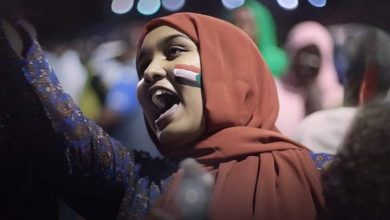‘Walking the Red Carpet ..!!!

The New Arab – Sudan Events
Mohamed Kordofani, a Sudanese director, finds himself torn between attending the prestigious Cannes Film Festival to showcase his award-winning film, Goodbye Julia, and the ongoing conflict in his homeland.
Sudanese director Mohamed Kordofani is speaking to journalists one by one at the Cannes Film Festival, on a sunny terrace in the majestic Palais des Festivals that overlooks a pavilion of yachts. He’s talking about the ongoing conflict in Sudan, his initial feeling of guilt – even discomfort – of being here in this prestigious film festival, while his countrymen try to flee and survive the conflict in Sudan.
“It’s so unfortunate that the announcement of the film to be selected in Cannes was just two days before the war broke. We didn’t have time to really celebrate this,
Meanwhile, the United Nations refugee agency estimates that more than one million people have been displaced from six weeks of fighting in Sudan, including a quarter of a million refugees.
“I struggled for a few days to accept the fact that I am going to be in Cannes walking on the red carpet while people are running away from the war,” Mohamed said. “But at the end of the day, I made peace with it, because I felt like it would be better for Sudan that I come here and maybe talk about these issues rather than just staying at home.
Goodbye Julia marks a new dawn of talents from the Sudanese film industry. Mohamed is trained as an aircraft engineer and had only previously directed short films, music videos and commercials before this debut feature film.
Despite these fresh beginnings in cinema, Goodbye Julia was widely praised at Cannes, particularly for Mohamed’s writing and directing.
Despite its political context, the film doesn’t deal explicitly with politics but rather with domestic, personal affairs.
“I can see myself being just a victim of my society,” the director said, looking back. “Not everyone will be happy to admit we [Sudanese people] have an inherited racism and patriarchal issue,” he continued, reflecting on the likely controversy the film will receive from a wider Sudanese public.
As the 76th Cannes Film Festival came to an end, Mohamed Kordofani said he is not planning where his next film premiere will be, but where his next home will be — he cannot go back to Sudan and remains unsure where to go next.
“The feedback I’ve received so far is that this is not just a film, because people now understand Sudan better. They can see past the smoke and the fire and the things that they see in the news, and get a lens to see the people that live inside these homes,” he says.
“And this really helps treat the news not as news, but rather as a human crisis.”



